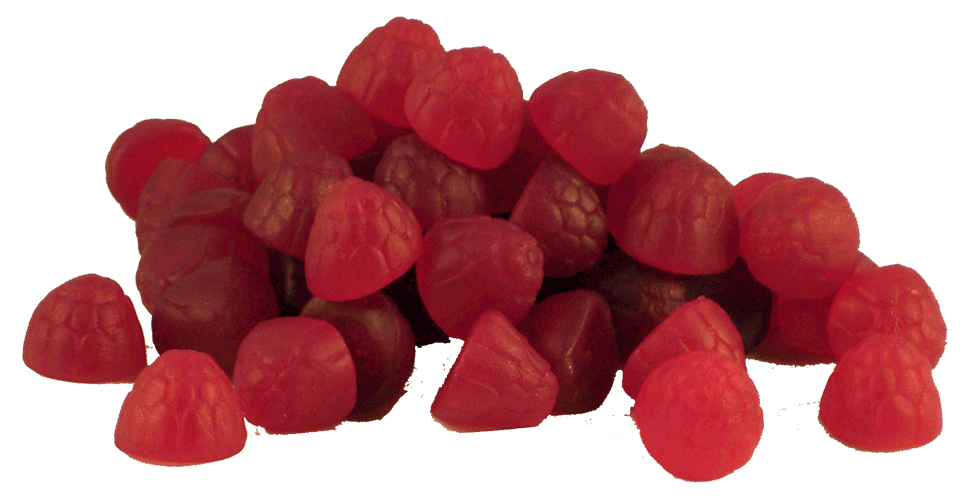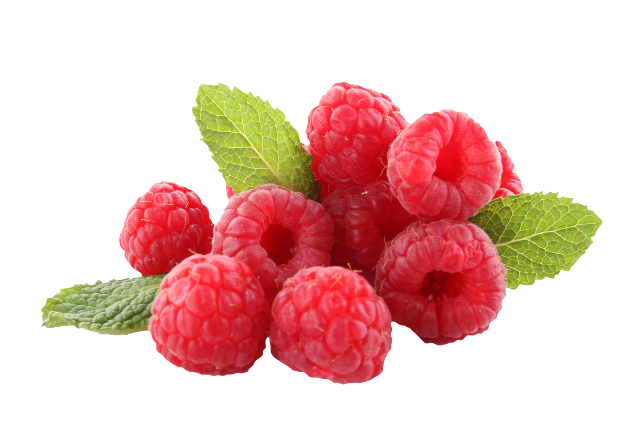The Perfect Dance Diet: May not be what you think.
It's becoming more and more apparent in today's health industry that there's more to keeping fit than just exercising and counting calories. With plenty of new studies and research data being collected and published every year proclaiming to have uncovered some new (conflicting) 'key' to achieving the perfect healthy body, it's clear that everyone has there own ideas on the ideal path to fitness. One minute we're told 'No carbs!' the next it's 'More protein!' or, 'no sugar is the key!', but 'dairy is bad!'... 'actually, no, dairy is great! Just avoid chocolate', then 'If you're smart eat chocolate daily, just no caffeine!', 'Stick to margarine not butter. No, scratch that, butter is best!', 'Oh and coffee, coffee is actually wonderful.' ...*cue mental breakdown whilst sobbing into a box of half-eaten chocolates*.
It's no wonder that tucking into a meal these days can give any health-conscious human a mini-panic attack. One day during dance rehearsals for an upcoming show I found myself sitting between two friends, each convinced their lunch was the ultimate healthy diet, sure to provide them with all the magic ingredients they needed and none of the evil foods that they were both adamant would somehow transform then into sumo-sized dancers faster than Rothbart can magic Odette into a swan... the trouble was, they were completely opposing each other. One friend was adhering to a strict no-carbs philosophy, snacking on nuts at break time, and living off avocado and egg salad for protein and energy. The other friend in contrast, was of the opinion that fats were to be avoided at all costs, opting to consume as many low-fat, concentrated carbohydrates for sustained energy as she could cram into her tiny portioned lunch container - usually consisting of a banana and a brown rice or pasta dish - and the disapproval with which she eyed the innocent packet of nuts sitting beside me was practically palpable. Meanwhilst her food seemed to be physically repelling my no-carbs classmate. It was like sitting between Abby Lee Miller and Kelly Hyland from Dance Moms.
To say that things were 'tense' in the locker room is an understatement.
No carbs?
vs. No fats?
So who was right? Which diet is correct? The simple answer is both of them, and neither at the same time. Now hang on! Before you despair at that answer, roll your eyes and go back to Googling 'ultimate dancer diet' let us explain;
The problem with the concept of any 'diet' is that it necessitates the restriction of a certain food group, which when you listen to the 'weightloss experts' might sound like a great idea, but is really just an unhelpful fad, with nasty consequences and empty promises. The perfect diet is created through balance, not restriction. Every food group has a purpose and serves a valuable function within the human body, so trying to vastly reduce or eliminate any one of these is going to hinder your body from performing at it's optimum level, and when you are living a particularly active lifestyle as dancers are, this has an even greater impact on your body's ability to function properly and your overall well-being. Not only that, but you're going to have an extremely hard time, because the human body is one awfully clever little machine, and it will be constantly triggering you to crave the food group that it's being deprived of, in order to get what it needs. So if you decide to restrict your fat intake (when fat - by the way - is actually responsible for lowering cholesterol, burning sugar and stabilising blood sugar levels, building muscles and even promoting weight loss to name but a few of it's benefits), guess what's going to happen? You'll probably find yourself neck deep in a tub of Ben and Jerry's before the end of the week.
'Splurging' is often a sign that your body is feeling deprived. (Image: www.accoladesfitness.com)
The truth is that any diet that focuses on 'cutting out' a certain food or food group is not acknowledging the way in which our body uses nutrient sources. Something that everyone needs to be aware of is that, even though every nutrient has a specific function, no nutrient ever works completely alone – this is known as the principle of nutrient interaction. Every thing that a nutrient does within the body, it does with the assistance of a series of other processes, which are only possible with the presence of other nutrients.
For example, as the Mental Health Foundation explains in a report by Courtney Van de Weyer; "If fat is ingested, it will be broken down into its different fatty acids, which may then be converted (or ‘elongated’) into the types of fatty acids the body needs. Similarly, protein will be broken down into its different amino acids. These are then available to perform a wide range of processes in the body – including acting as a precursor to other metabolic processes." - Hence, 'eliminating' fat is the equivalent of trying to take a leg off a table, and expecting it to stand straight; it's just not going to work.
The answer is balance: Carbs + fats in moderation will both do you the world of good.
So now you're starting to get the picture, how do you go about implementing a 'diet' strategy that won't leave you feeling like you're playing a great big nutritional guessing game... Here's some strategy tips to keep you on track:
The Guidelines.
1. Keep it simple: Yes, everything does serve a purpose in the human body. That being said, not all foods are created equal. If you're not sure how healthy something is for you, remember, the less refined the food, the better it's likely to be. Eg: if something looks like it's been plucked right out of the garden (ie. raw fruit and vegetables, nuts, etc.) then you know it's going to be high in nutritional content and lower in additives and nasty preservatives, artificial colours, flavours and sweeteners. If however, it looks more like it's sliced and sautéed it's way through Gordon Ramsay's kitchen, whilst it's (surely) going to be delicious, it's pretty safe to assume that there will be more of those unwanted, processed ingredients and less of the natural stuff. To take it up another notch, if it's takeaway you bought from a fast food joint the other night, and it's sitting in your fridge and still looking fresher than you do after an invigorating jazz class... well it's probably more parts preservatives than food.
So given the choice between two foods, always try to opt for the fresher, less processed of the two. Your body will definitely appreciate it, and I'd wager your tastebuds will too!
2. All things in moderation: So you're craving chocolate? Okay, have some. As long as your idea of 'some' isn't a whole block of Cadbury and a packet of TimTams then there's no harm in having a treat every now and then. Even someone with the self-discipline of, well.... a dancer! - Is not going to be able to maintain a diet that restricts everything even moderately naughty. We all need a treat every so often, regardless of whether to you that means a slice of homemade pizza or an indulgent scoop of icecream. As long as you don't approach the treat with a self-destructive mind-frame ("OMG my diet is ruined, I will never succeed now!" - ahem, not true!) then having something tasty that you enjoy can give you the boost of motivation you need to keep going with your goals, and reassure you that healthy eating is a reward itself, not a sentence to be endured.
3. Stop focusing on the (so-called) bad and start focusing on the good. So far, the health industry has maintained a pretty firm 'Avoid this!!' type tactic when it comes to educating people on what to eat, but at the end of the day, creating negative images around food is only going to leave you feeling miserable and restricted, and set you up for failure. Consequently when you do fall off the wagon, the negative connotations that we have self-imposed on 'bad foods' transfers to you, and you end up feeling like a bad person, or even disgusted with yourself, which isn't just untrue (stop it!) and harmful, but only greatens the chance that you're likely to slip up again, since you're already feeling like you've failed. Solution: when you're wanting to improve your diet or lifestyle, focus on what you need to start doing or eating and forget about the negative things to avoid. Your new healthier routine will naturally start to replace the old foods and habits without you actively avoiding them. ...And you'll be so much happier for it.
Oh, and the same goes for your body. If you really want to succeed in having a healthier, stronger physique, then focusing on the negatives ain't gonna cut it. If you've been working your butt off, and eating healthy for two weeks, but you're still looking in the mirror and attacking your own reflection then of course you're going to struggle to keep going. How are you supposed to keep working hard when you're still only scrutinising your flaws. From day one it's essential that you create a positive attitude towards your body in order to ensure you're giving yourself the best chance at success. Make it a goal to notice the improvements instead of the flaws. Arms looking a little more toned? Yay. Stomach feeling a little tighter? Woohoo. Did an extra 10 minutes on the treadmill today? Go You! Body shaming yourself will never help in any way. It will definitely make the job harder. And you deserve better.
4. It may be a cliche, but remember the mantra 'You are what you eat' ...because we absolutely are.
...just not quite this literally!
A human body weighing 65 kg comprises: 61.6% water, 17% protein, 13.8% fats, 6.1% minerals and, 1.5% carbohydrates. So as you can see, cutting out proteins or fats, even moderately, is going to have a huge impact on your entire body, especially when 20% of the entire body’s calorie intake goes to the brain alone. And yes I know we're all getting a little tired of experts harping on about how much water we need to be drinking... but you really do need it! Fluid is continuously lost throughout the day with sweat, evaporation and excretion, and if it's not replaced the dehydration will start to affect your mood and alertness. Amongst other things, the bodily fluid we maintain through drinking/ingesting water is responsible for digestion, absorption, circulation, creation of saliva, transportation of nutrients, and maintenance of body temperature.
And then of course food with high water content often looks larger, is absorbed more slowly by the body, and it's greater volume requires more chewing, which all helps you to feel fuller. So opting for foods with a higher water content can be an extra strategic step in keeping up the good work; fruits, vegetables, broth-based soups, oatmeal, and beans are all great snacks and meals that will increase your water intake and boost your will power.
It's also a great way to look at eating as a tool with which you are building and improving yourself every single day. Each food that you put in your mouth is helping to shape who you will be tomorrow, and the day after, and the day after that. This makes eating that bowl of veggies even more rewarding when you're aware of how much your healthy eating habits will impact your body.
Image source: https://iamimperfectandiamenough.wordpress.com
So there you have it. Hopefully we've helped to shed a little light on some of the common dieting misconceptions that bombard us all on a daily basis and have put an end to any tragic 'fat-phobia' or 'carb-phobias' you may have been suffering from. At the end of the day the main thing to remember is to trust your body, and to treat it with the respect and love that it deserves.
After all, your body produces 25 million new cells each second, your brain has over one billion brain cells, and your nerve impulses are firing off at an incredible 400 km/hr. Your heart is beating around 100,00 times every day, whilst your eyes can see up to ten million different colour surfaces and take in more information than the largest telescope known to man, and in your lifetime you will store one quadrillion (that's one million, billion) separate bits of information... so take a minute to think about how amazing your body is, and then go and do something awesome with it!
Happy being-active guys!










